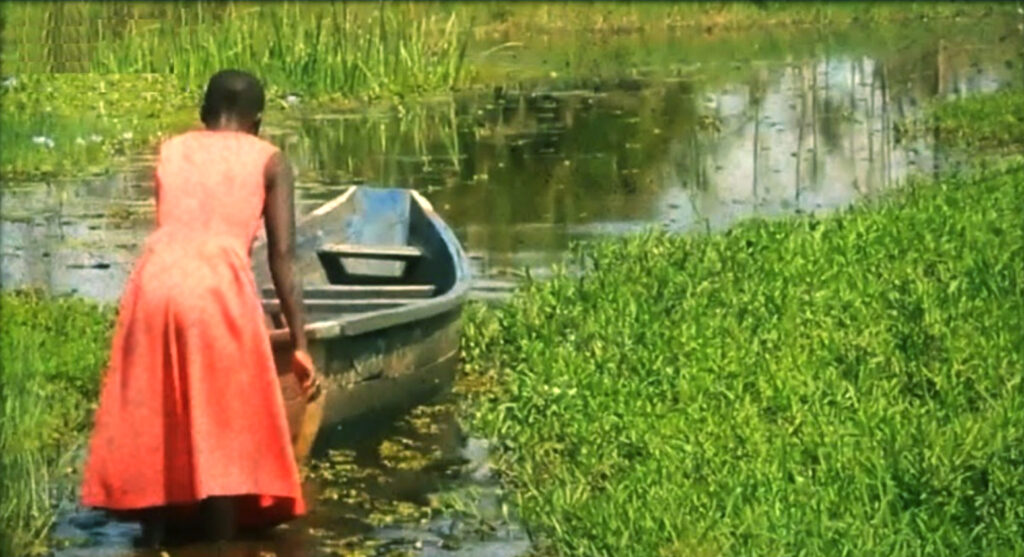Gender and Leadership: An Expectation, Not an Exception
Phyllis Byrd serves with the Organization of Africa Instituted Churches (OAIC) in Kenya.
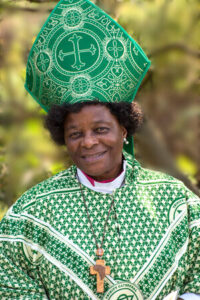
What would it look like? The familiar faces you see are women leaders in the public space (the first Nobel Peace Prize laureate), political space (the first female president of Liberia), and the religious space (the first African consecrated bishop in the Anglican church) in Africa. The Organization of African Instituted Churches (OAIC) and St. Paul’s University, held an Africa-wide online course on “Gender and Leadership: Who told women to keep silent?” This course was sponsored by CKU of Denmark, Global Ministries, and the OAIC. The participants comprised of women and men, ordained and lay. They came from many different denominations throughout Africa. The participants spoke of various leadership barriers women face within their denominations. They discovered similarities they had in common with other participants. Some of the barriers were institutional mindsets, traced back to the colonial legacy of the missionary era through cultural hegemony. This has led to structural barriers within the African church and society at times.
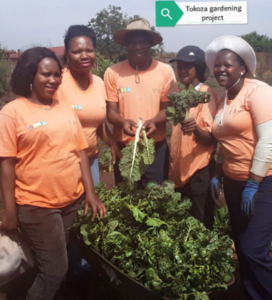
The sentiments give you a sense of a few challenges the participants brought to the course. What made this course so exciting that students did not want the course to end? It was the amazing lectures coming from different parts of Africa and the Diaspora enlightening us on topics such as: How colonialism shaped our understanding of the roles of women and men in church and society, Old and New Testament rereading, Womanist and Motherism thought, etc. The participants were not only the students. The lecturers and leaders of the course learned together and from each other. The course was not for information or knowledge building alone, but for the purpose of students coming up with action plans for fostering gender and equality in their own settings. These are just a few things that made the course dynamic.
Space will not allow me to share all that was taught and the action plans of the participants. I will, therefore, highlight how the course changed the way one student works with women in her community.
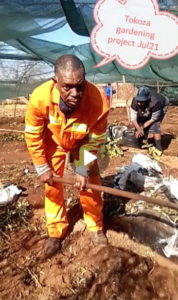
“This course has given me strength to respond to some of the social problems we face in our community. I feel emboldened to do something about it. Women in one of the poorest areas of South Africa are facing food insecurity. This, at times, brings conflict and even violence within the family setting. One of the things I learned from the course is the importance of understanding the community and having data that helps us to address some of these challenges. Hunger, malnourishment, and family conflict are just some of these challenges in this community. We approached one of the schools in the area that had unused land. We asked if the community could plant a garden. The school agreed, and you can see the results. This has not changed policies in the church regarding women ordination, but in my small way, it gives families in the community hope, it addresses health issues and hunger, and reduces stress in the family just to name a few”. – Nomsa Mfusi
The reality is that photos cannot contain the dynamism of the organic nature of gender and leadership at the grassroots level. This is not to downplay the challenges and barriers women and girls face on a daily basis. One of the lessons from this course is that gender and leadership within church and society need to begin at an early age. It should be an expectation, not an exception.
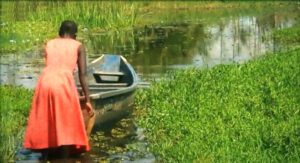
13-year-old Virginia was not part of our course, but she epitomizes the organic dynamism of gender and leadership. Virginia lives in an area of the country that is known for flooding. It is also a fishing community – Virginia’s father is a fisherman. Recently, Virginia’s mother went into labor around 3 AM. Her father was not home, and the homestead was totally flooded. Virginia went into action by putting her mother into a boat and paddling for 2 hours to the hospital. The only light in the village was courtesy of the stars and the moon!
The OAIC is committed to identifying dynamic young people like Virginia living in villages and informal settlements all over Africa. Virginia sums up what gender and leadership look like. At her young age, she possesses observation skills, situational analysis skills, interference, and problem-solving. She did not hesitate because of fear of the dark, the floods, or question if she would be successful. Her father taught her how to paddle a boat since they live in a flood-prone area. Imagine if Virgin’s skills were nurtured and given space to develop. Imagine if she was encouraged to continue to take on challenges in life. Imagine the contribution she would make to her community and the world at large.
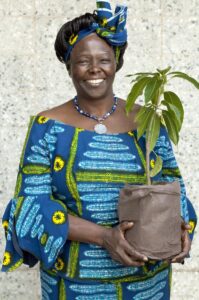
What do gender, and leadership look like? It looks like the men and women that took part in the course and the actualization of their plans as they address the structural cause of inequality and gender-based discrimination in church and society. It looks like Virginia as her thought processes and actions challenged gender norms and stereotypes.
Thank you OAIC, Global Ministries, CKU, and St. Paul’s University for your contribution in standing in solidarity with men and women in Africa.
Please continue to pray for the OAIC as we work in communities throughout Africa.
Phyllis Byrd serves with the Organization of Africa Instituted Churches (OAIC) in Kenya. Her appointment is made possible by gifts to Disciples Mission Fund, Our Church’s Wider Mission, and your special gifts. Make a gift that supports the work of Phyllis Byrd

